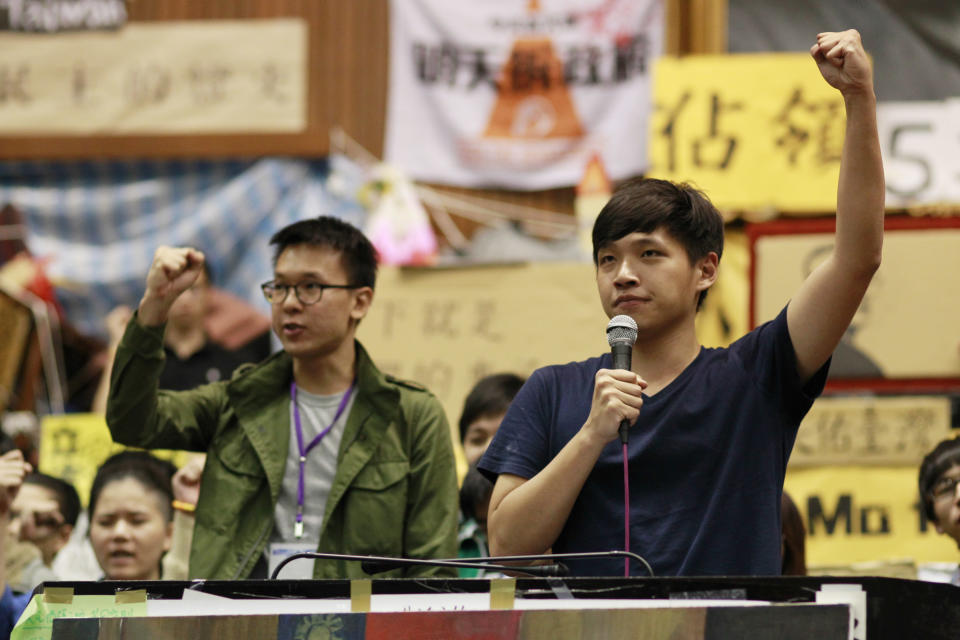Students end 24-day siege of Taiwan's Parliament
TAIPEI, Taiwan (AP) — Students ended their unprecedented, 24-day occupation of Taiwan's Parliament late Thursday after receiving assurances that a Chinese trade pact they see as imperiling the island's autonomy would undergo legislative review.
The pact would allow Chinese and Taiwanese service companies, including banking, telecommunication and tourism firms, to operate in each other's territory. Opponents who fear it could cost Taiwan jobs or even its democracy also criticized the ruling party's attempt to push the pact through without a detailed review.
"Taiwan's representative politics have already completely lost their function," said Chiang Chi-ji, a spokesman for the students, reading out a statement in the evening from inside the Parliament building. "The government's 'black-box' decision making obstructed the people's participation."
Chiang said the students felt that the trade pact must protect Taiwan's national security, democratic freedom, cultural identity and environment.
The students, many of whom wore black T-shirts with printed slogans, filed out of the building to raucous cheers from a crowd of thousands of supporters who had gathered to welcome them. Some of the student leaders walked onto a stage facing the supporters and bowed toward them.
President Ma Ying-jeou's ruling party had attempted on March 17 to skip a promised detailed legislative review of the trade deal ahead of its ratification. A day later, hundreds of student protesters stormed Parliament, marking the start of an unprecedented siege, followed by a short occupation of Cabinet offices and a rally drawing more than 200,000 protesters.
The protesters at first demanded that the trade deal be withdrawn, but they agreed to end their siege when parliamentary speaker Wang Jin-pyng promised Sunday to first enact legislation requiring more public consultation, including public hearings, for trade deals, and to apply the measure to the current trade pact before it is ratified.
"It's not an end, it's a beginning," said Hung Syuan-Wei, an 18-year-old high school student who spent 20 of the past 24 days at the protest site helping to collect trash and organize events. "There will be many more actions from now on. Thanks to the student leaders who were willing to stand up, more people are aware of what's going on now."
Taku Hsu, 31, who works at a TV station, said she saw the protests as an expression of the public's long-suppressed anger against the government for mishandling social issues.
"I consider this movement successful in terms of how it has made more people care about politics. Many see the pact as an economic issue, but I think it is a political issue," Hsu said.
Police have said none of the protesters would be arrested if there is no violence.
Meanwhile, Chinese Premier Li Keqiang told former Taiwanese Vice President Vincent Siew on Thursday that China believes the two sides have an "important opportunity" to deepen economic ties.
"We would like to share the opportunities brought about by the mainland economic growth with Taiwan," Li told Siew on the sidelines of an economic forum in southern China, according to remarks carried by Chinese state media that did not mention the protests or the controversial agreement.



